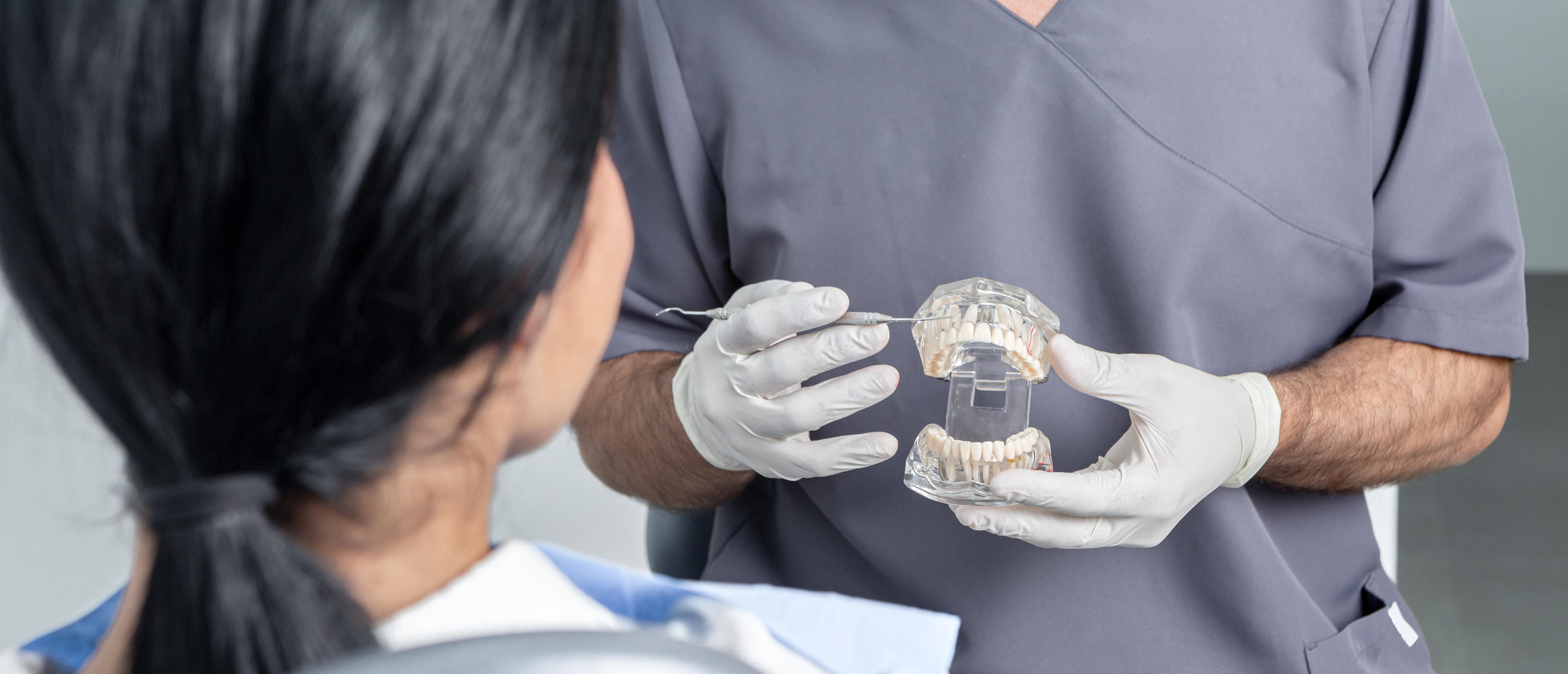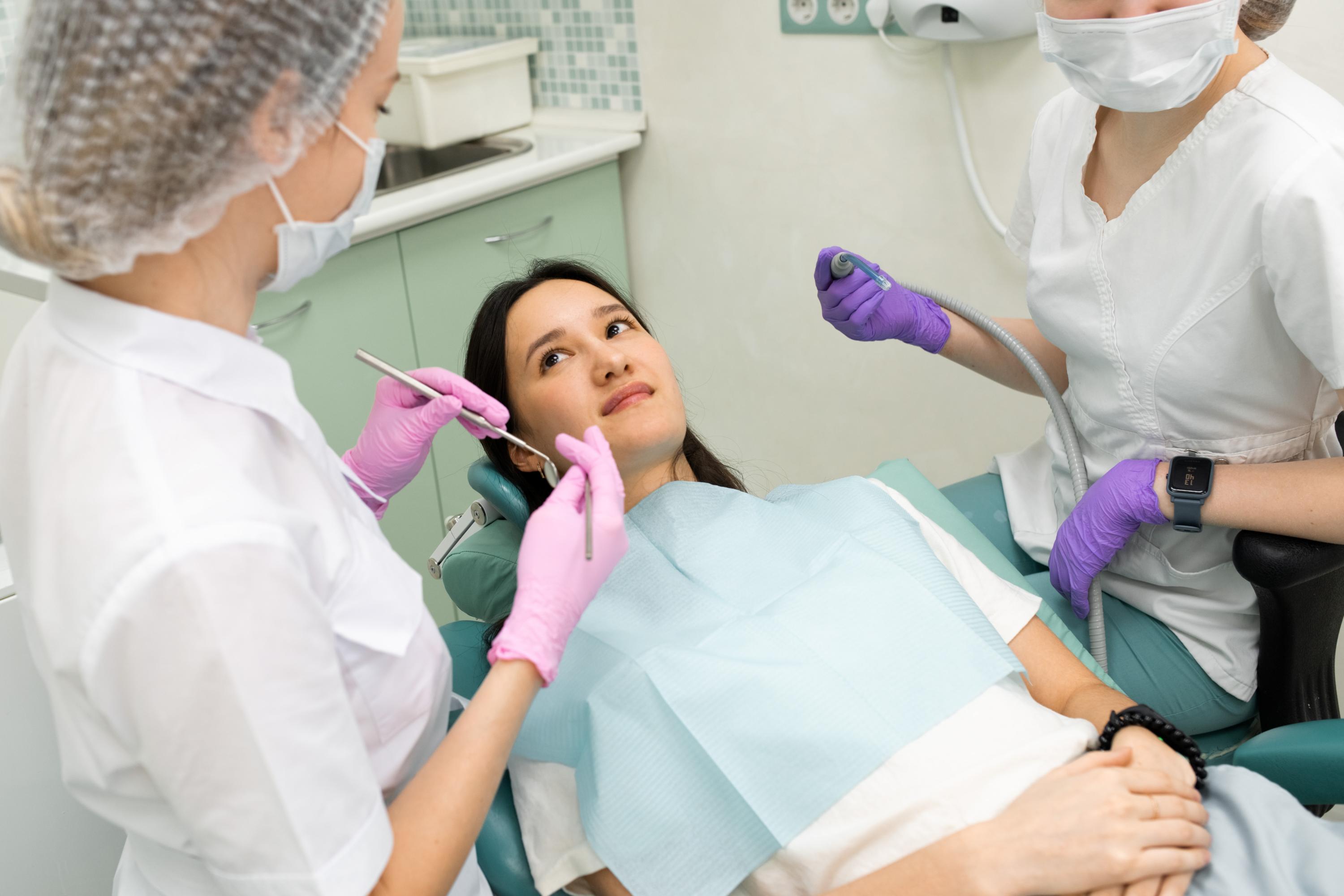
Allergies to Dental Materials and Contact Stomatitis
With sensitivities to chemical and environmental irritants so prevalent in the general population, dentists sometimes encounter patients in their patient pool with a history of allergies to dental materials. The incidence of contact dermatitis associated with a dental procedure is less than 1% of all patients.
However, when your patient is one of those in the 1% group, their discomfort level is 100% real for them. What are the treatment alternatives available for patients who suffer from dental-related allergic contact stomatitis?
The Materials
While it is possible for any individual to become overly-sensitized to almost anything that is present in the environment, there are specific materials commonly used in dentistry that have a propensity to elicit dental allergies in some individuals. The Journal of Clinical and Diagnostic Research offers a comprehensive literature review on the causative agents of allergies to dental materials.
Dental materials with suspected biocompatibility issues that can contribute to contact allergy reactions include resins, latex gloves, local anesthetic agents, endodontic materials, impression materials, dental amalgams, and metals used in prosthodontics and orthodontics.
Let’s focus on the three most common allergic reactions:
Latex
When the AIDS crisis began in the mid-1980s, dentists began wearing gloves for the first time in their careers. At the time, latex gloves were the standard and were all that was available to protect yourself and your patients from the spread of disease. As exposure to latex increased, so did adverse reaction to latex in our patients.
But the bigger issue and impetus for change were dental professionals and staff who began experiencing symptoms of contact dermatitis (estimated at 17%) from wearing latex gloves all of the time.
Fortunately for everyone, more kind alternatives have been developed, such as nitrile and vinyl, that have a much lower incidence of producing contact dermatitis. Latex and latex allergy has largely been eliminated from most dental practices.
Metals
Allergies to dental materials can be a symptom of nickel sensitivity when wearing a cast metal partial denture or a prosthesis with metal components. The rash or erythema associated with dental metal allergy and tissue response often is characteristically limited to the exact area that comes in contact with the metal. Removing the partial for a few days solves most adverse reactions.
Resins
Allergies to acrylic resins are often attributed to under-processed free methyl methacrylate monomer being leached from the denture base for weeks or months after a denture was fabricated. While the immune response in some patients adapts as they continue to wear their new dentures and the irritation clears up over time, the burning sensation of contact stomatitis only goes away for other patients when the dentures are left out of the mouth. But not wearing a prescribed dental appliance is not a proper dental treatment.
Allergies to Dental Materials: Symptoms
Type IV t-cell-mediated delayed allergic reactions can occur one or two days following exposure to the allergen, whereas Type I immediate allergic reactions prompt almost immediate reactions. Both can present as a range of symptoms that can include itching of the skin or mucosa, a burning sensation, erythema, edema localized to the area of contact, rhinitis, cheilitis, or lightheadedness.
Since a majority of allergy to dental material symptoms involve exposure to metals or appliances made using two-part powder and liquid methyl methacrylate, what can dentists do to minimize or eliminate the offending chemicals from the prostheses that they deliver? One way is to take the approach of employing materials that are more biocompatible and kinder to the tissue. Let’s talk about some of the alternative materials that are currently available that don’t risk allergic reaction.
Digital Dentures
Digital dentures offer a number of benefits over dentures that are made using traditional reverse image processing methods. Because they are designed to exact specifications, they fit more precisely and require fewer adjustments which translates into improved patient comfort. As an added benefit, digital denture fabrication methods utilize a manufacturing process that completely avoids patient exposure to monomer.
Milled dentures take their shape from blocks of pre-processed hardened resins, while 3D-printed dentures utilize light-cured resins as they are constructed incrementally with CAD/CAM technology. This technology is easily incorporated with impression data collected via a chairside intraoral scanner, yielding a completely digital workflow.
In addition to reducing errors and creating better-fitting appliances, scanning also eliminates patient discomfort and the possibility of sensitivity to components present in impression materials.
Nightguards
Like digital dentures, clear resin nightguards can be produced using the same technology for excellent comfort and fit. Gone are the days when using the salt-and-pepper technique to construct a nightguard was standard procedure.
While a skilled lab technician can make a great fitting protective appliance using this method, the process often releases free monomer that could prove harmful to your patient. Digitally-produced nightguards provide a safer treatment alternative.
Acetal Resin Partial Dentures
Zirlux acetal partial frameworks are computer designed and milled from void-free disks of co-polymer resin via CAD/CAM technology for a precise fit. Acetal resin is a semi-flexible material in framework form, allowing it to adapt comfortably to the contour of the mouth.
Its strength allows the manufactured framework to be supported by the existing dentition, much like a metal framework. Clasps are made from the same resin material and have elastic memory that is designed to engage securely into the natural undercuts of the abutment teeth for maximum hold.
The use of tooth-colored or clear resin makes this framework nearly invisible when fully-seated. This is a great alternative treatment option for patients who are concerned about using dental metals in their mouth or who want to avoid the look of metal entirely.
Valplast Partial Dentures
Made from a combination of bio-compatible nylon and thermoplastic resin, Valplast partial dentures feel much closer to a natural dental restoration than other removable tooth replacement options, such as cast metal partial dentures.
Valplast partials hug the patient’s gum tissue, and the flexible clasps snap securely into place around the existing dentition and gingiva, providing a comfortable, contoured fit. The clasps are made to blend with the surrounding gingiva, making them much less noticeable than metal clasps.
Because Valplast doesn’t use traditional monomers in its manufacture, it is safer to use for your patients who have a history of allergies to dental materials used to construct traditional removable prosthetics.
Titanium Framework Partials
Titanium is probably the most biocompatible metal known to man. Its strength and its long history of documented uses in joint replacement prosthetics and dental implants make it an excellent choice as the basis for a removable dental prosthesis.
While traditional cobalt/chrome frameworks contain small amounts of nickel or other elements that can provoke an allergic response in some dental patients, frameworks milled from titanium bars provide strength, corrosion-resistance, and precise fit while eliminating the potential for red, inflamed tissue caused by a metal sensitivity.
Managing Allergies to Dental Materials at Stomadent
If you are scratching your head wondering how you can possibly help a patient that seems to have adverse reactions to every dental material used in your office, contact us. Stomadent Dental Laboratory is your go-to source for removable prosthetic appliances that utilize safer, non-allergenic materials.
We strive to remove barriers to our fixed and removable restorations. Our lab technicians can custom design the most inert removable dental appliance possible using our knowledge base, experience, and repertoire of advanced methods and materials. We look forward to working with you!
Request a Free Dental Lab Kit
Find out for yourself how Stomadent Dental Laboratory can help your dental practice excel through digital dentistry. Get started by requesting our free dental lab kit today.
The kit includes everything you’ll need to order dentures, dental crowns, dental bridges, and other dental prosthetics from our professional dental lab, including:
- FedEx two-day return postage shipping labels
- Laboratory prescription forms
- Mailing containers
- Product and service inserts with fee schedules


